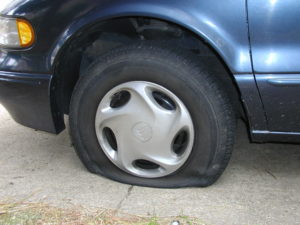 Tire Maintenance is a quite often discussed topic and you may have heard your local automotive technician talk about its importance. There are a number of aspects that many people should consider when it comes to maintenance of their car and maintenance of their tires. Safety and engine performance as well as economy are some fo the first things that come to mind. Without good tires on your car, not only are you sacrificing :
Tire Maintenance is a quite often discussed topic and you may have heard your local automotive technician talk about its importance. There are a number of aspects that many people should consider when it comes to maintenance of their car and maintenance of their tires. Safety and engine performance as well as economy are some fo the first things that come to mind. Without good tires on your car, not only are you sacrificing :
- Safety of your car and occupants
- Probably getting poor gas mileage, which costs you money
- Doing damage to shocks and the support systems of your car
- Accelerating the wearing out of your tires and initiating possible blowouts on the road.
- Increasing the potential for an accident when your tire blows out at high speed.
Tire Maintenance
There are a number of variables to keep an eye on. If you use a to do list, add these items to your list to check on a regular basis and make some decisions about what you need to do relative to your tire maintenance.
Car tire Aging: Whether you use the car or you don’t, car tires age, primary indications of car tire aging would be cracking on the side walls, on the treads or fading of the treads, sometimes accompanied by tire wall distortion. Old or aged tires must be checked by a tire expert before use to ascertain it’s suitability for road usage.
Not only can your tires be dangerous because of age if you keep them a long time on your car due to the low mileage you drive every year, your tires might have been old before you bought them. Always ask the mechanic how old the tires are before they are installed new. There is an indicator on the side wall that will tell you when the tire was made. Anything over seven years should not be installed on your car.
Mileage
Depending on the quality of the tire, they can be good for 20 thousand miles all the way up to 100 thousand miles. You should keep track of how many miles are on your tires and how well the tread on your car is doing. If it gets low, change the tires, if you reach the recommended miles, change your tires.
Your tires wear out depending on the number of miles driven, the type of the surface. Of course sometimes even the kind of driving you do. Poor maintenance such as failure to rotate. Poor inflation, off balance and poor alignment can accelerate the wearing out of a tire. Tire Maintenance means checking your tires on a regular basis.
Inflation Pressure
Tires are the only point of contact between the vehicle and the road surface, hence inflation pressure of your tire happens to play a vital role in safety driving characteristics, mileage and also fuel consumption.
Car manufacturers have tested your recommended tires for your car for gas mileage, handling and many more factors to arrive at the optimum pressure for your tires. Following this guideline will maximize the value you get out of these tires and also the safety of your car. This is the most basic of tire maintenance steps you can take.
Misalignment: Tires when not positioned properly, or if not aligned properly, can cause uneven wear. This can occur on either side of the tire shoulder or both the sides. It can have have a slightly torn and faded look. Check periodically or at least once a month for wheel alignment, wheel balancing issues. Examining the tread patterns on your tires. Any abnormal wear is an indicator of a problem which should be addressed.
For much more information about tires and tire maintenance, click here.
February 27th, 2013 on 4:40 am
Really surprised to learn so much about tires